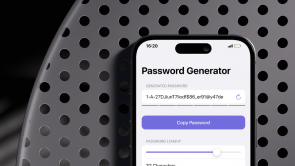Do you struggle with body clock problems and getting a good night'ssleep? Well, fear not because researchers from the University of Surrey and the University of Groningen may have found a solution that could help you get your sleep schedule back on track.
Through their groundbreaking research, these experts have developed an innovativemachine-learningmethod that could help you gain a better understanding of your internal body clock, enabling you to make more informed health decisions, such as when to hit the hay and how long to snooze for.

Targeted Metabolomics Approach
Using a targeted metabolomics approach, the researchers collected blood samples from 24 healthy individuals, including 12 men and 12 women, who had regular sleeping schedules a week before visiting the University clinical research facility.
The team measured more than 130 metabolite rhythms and used a machine learning program to predict circadian timing by analyzing metabolites in blood, a more convenient and less invasive alternative to the traditional method of measuring the natural melatonin rhythm, specifically the dim light melatonin onset (DLMO).
Previously, measuring the natural melatonin rhythm; specifically, DLMO, was the conventional way of determining the timing of the circadian system. However, the latest method offers more convenience and requires fewer samples compared to the current tools available.
After taking two blood samples from each participant, the machine learning method accurately predicted DLMO with comparable or even better accuracy than previous methods, according to Professor Debra Skene, co-author of the study from the University of Surrey.
While researchers are cautious about the new approach, they are excited about its potential to enable personalized sleep and meal plans based on personal biology and to reduce the risks of serious illness associated with poor sleep and mistimed eating.
Helpful Guidance on Sleep Patterns
"Smart devices and wearables offer helpful guidance on sleep patterns-but our research opens the way to truly personalized sleep and meal plans aligned to our personal biology," Professor Skene said in apress release statement.
Professor Roelof Hut, co-author of the study from the University of Groningen, added, "Our results could help to develop an affordable way to estimate our own circadian rhythms that will optimize the timing of behaviors, diagnostic sampling, and treatment."
So, if you've been struggling with sleep issues, this new machine-learning method could be just what you need to get your body clock back on track. No more counting sheep or drinking warm milk - just a simple blood test and a personalized sleep plan could be the key to a good night's rest. And who doesn't love a good night's sleep?
这项研究名为“机器学习估计human body time using metabolomic profiling" waspublishedin the Proceedings of the National Academy of Sciences.
Related Article:Powerful Algorithm Used by Netflix Deciphers 'Biological Language' of Cancer, Neurodegenerative Diseases














